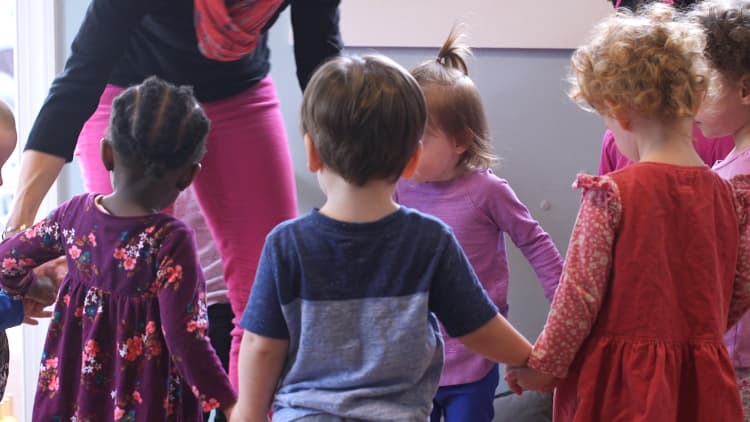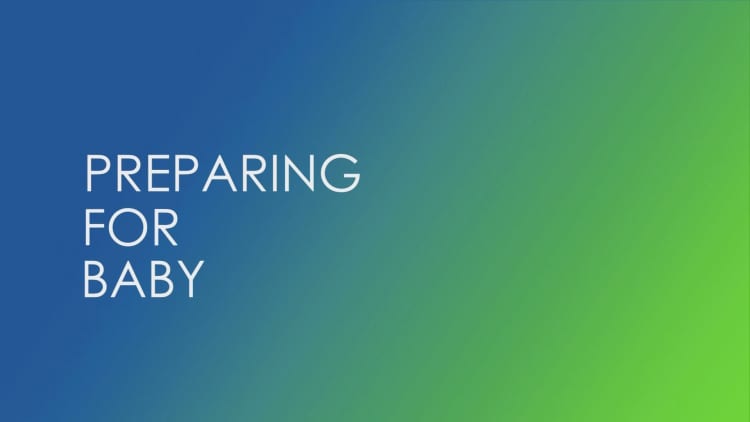American parents with children under the age of five are forking over a total of $42 billion for early child care and education, such as preschool programs.
That's far more than the federal government is currently spending, according to a recent report from the progressive think tank Economic Policy Institute.
Public spending to fund early child care and education is about $34 billion, with the federal government kicking in about $22.2 billion and state and local municipalities spending about $11.8 billion, according to the most recent data EPI sourced from the Organisation for Economic Co-operation and Development in 2017.
Without substantial government support, Americans are being forced to stretch their budgets and make numerous sacrifices to make up the difference.
There's roughly 7 million U.S. households with children under the age of five, according to the U.S. Census (that figure does not include households supporting grandchildren). That means, on average, American families spend about $6,000 out-of-pocket annually, or about $500 a month, on child care and early education for their young children.
And that figure does not include the up to $35 billion in lost income EPI calculates American parents forgo every year by dropping out of the workforce or reducing their hours to care for their kids instead. This loss of potential earnings can occur across the income spectrum — it's not limited to low-income households, Elise Gould, an author of the study and a senior economist with EPI, tells CNBC Make It.
She notes that, unsurprisingly, married women tend to see the highest indirect costs because more have the "option" to stay home if their spouse works and brings in income. Single mothers, on the other hand, are less likely to opt out of work, and some may have to settle for sub-optimal early care and education for their kids since they may not be able to afford higher quality on their own, Gould says.

Using Gould's research and the census data, CNBC Make It estimates the average American household with kids are on the hook for about $11,000 in yearly direct and indirect child care costs.
That's on par with other similar reports: Child Care Aware of America found that many families regularly spent over $9,000 per year for a single child to attend day care in 2017. And a 2018 report found parents paid about $3,000 per child on summer child care alone.
However, the 2018 consumer expenditures survey by the Bureau of Labor Statistics found that Americans only spent an average of $321 a year on day care centers, nursery and preschools and another $100 on babysitting and child care services for a total of $421 a year on these costs.
EPI notes in its report that the $321 annual spend is a wide-ranging average and includes the millions of U.S. families who pay nothing for child care in any given year. Meanwhile "a small group of families . . . are paying a lot more than this average, and at a relatively early point in their careers when their incomes are low," the report continues. In the U.S., about 69% of households do not have children, according to U.S. Census Bureau.
In general, parents are facing a Catch-22 when it comes to paying for child care: Americans now have to put in more work hours to generally to make ends meet, which requires spending more on day care and babysitters. Yet since the 1990s the costs of child care have been rising twice as fast as overall inflation in the U.S.
In fact, Gould says that while there's no explicit data, she believes the high cost of child care, in some cases, is probably pushing families into debt, while other families may be "forgoing retirement savings, taking on additional work, and otherwise scrimping on other daily and monthly expenses."
Don't miss: New parents shouldn't count on penalty-free 401(k) withdrawals just yet
Like this story? Subscribe to CNBC Make It on YouTube!



